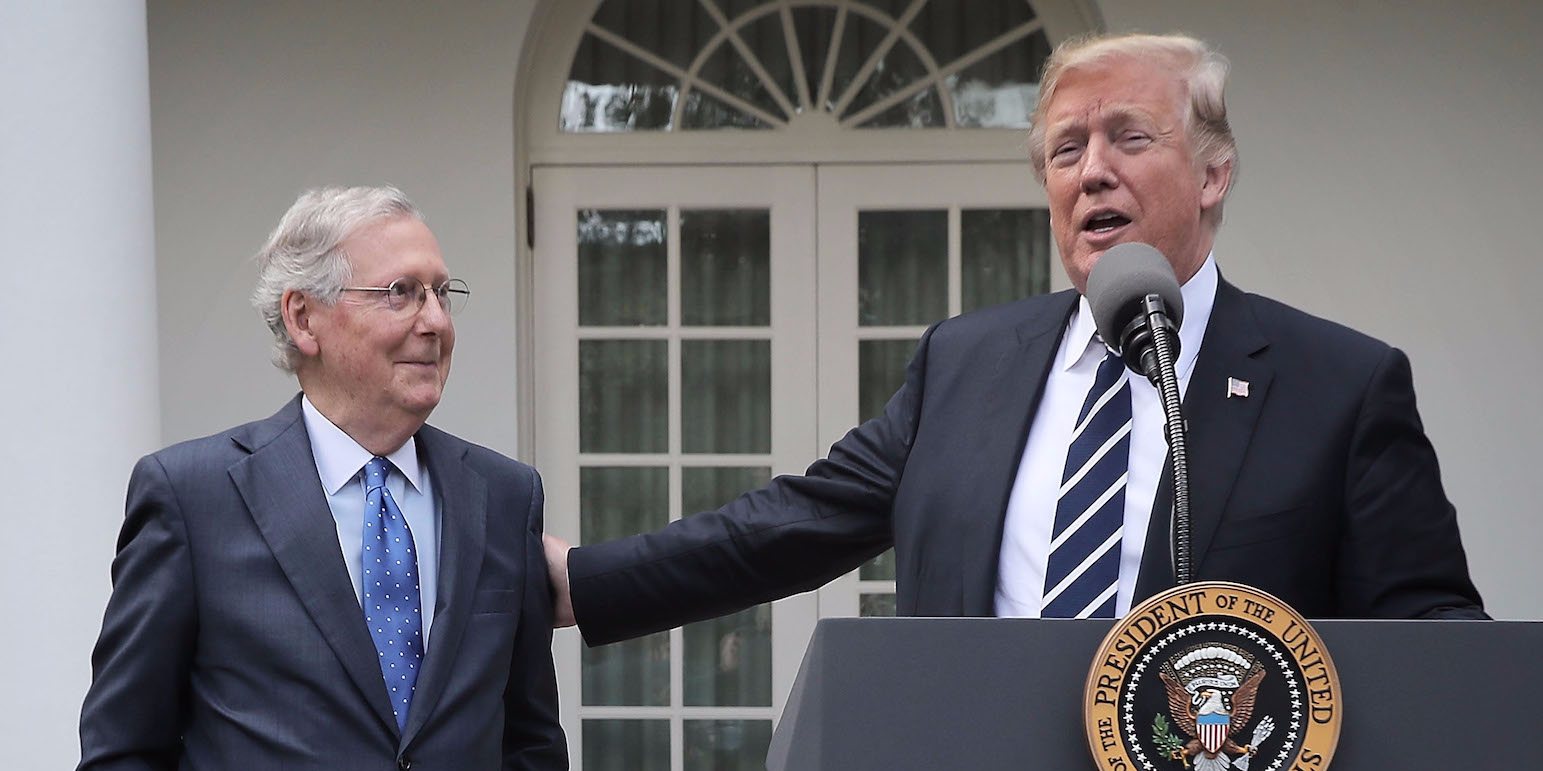- The Senate passed their version of the Tax Cuts and Jobs Act by a vote of 51 to 49.
- President Donald Trump congratulated the GOP Senators in a statement and said he looked forward to signing a final bill before Christmas .
President Donald Trump applauded the passage of the Senate Republican tax bill on Saturday, saying it was a step towards an overhaul of the US tax system.
“Biggest Tax Bill and Tax Cuts in history just passed in the Senate,” Trump tweeted. “Now these great Republicans will be going for final passage. Thank you to House and Senate Republicans for your hard work and commitment!”
The bill passed the Senate 51 to 49, with Sen. Bob Corker as the only Republican voting against the bill. Additionally, the $1.5 trillion in tax cuts is not the largest in history in either inflation adjusted dollars or percentage of GDP.
Trump said the bill’s passage brought the US “one step closer to delivering MASSIVE tax cuts for working families across America.” He also thanked Senate Majority Leader Mitch McConnell and Sen. Orrin Hatch, the second highest-ranking Republican in the chamber, for “shepherding our bill through the Senate. Look forward to signing a final bill before Christmas!”
Passage of the bill comes just three weeks after the Senate version of the plan, named the Tax Cut and Jobs Act, was introduced. Despite some pushback from GOP members and a mad scramble on Friday night to make a slew of last-minute changes, the Republican leadership was able to get the bill through.
White House Press Secretary Sarah Huckabee Sanders also released a statement thanking the lawmakers who voted for the bill.
"The Senators who voted for these historic tax cuts did a great service to their constituents as they supported putting America first, growing the economy, and rebuilding our great country," the statement said. "The policies in this bill will cut taxes for hardworking families and put our economy on a path of sustainable economic prosperity and job creation."
Since the Senate TCJA is different from the House version of the bill, the plan must go to a conference committee in which members from both chambers will attempt to hammer out the differences.
